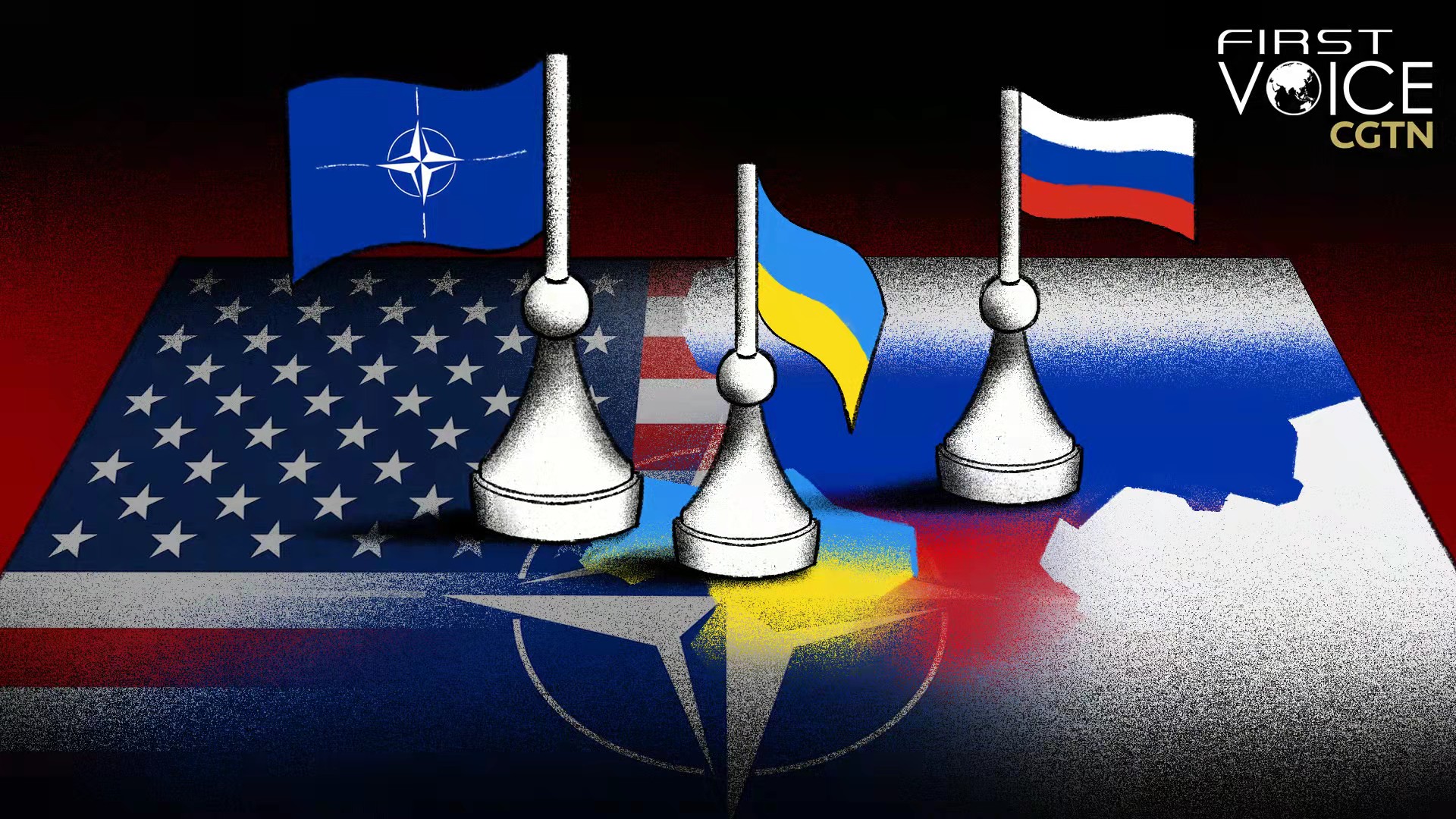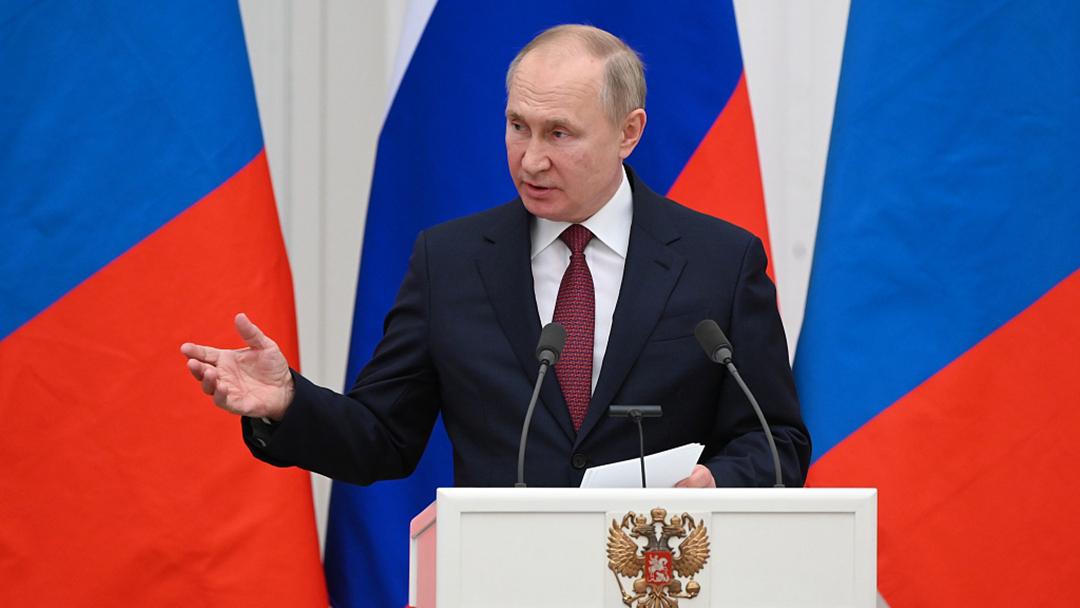
Editor's note: CGTN's First Voice provides instant commentary on breaking stories. The daily column clarifies emerging issues and better defines the news agenda, offering a Chinese perspective on the latest global events.
As American media outlets beat the drum for war on the Ukraine-Russia border, Moscow announced a partial drawdown of its forces in the region – a day before the date that the U.S. named for the "invasion." The claim was later labeled by the U.S. as "false."
Whether a war breaks out or not, Washington is the winner from this "intelligence" farce – with both Moscow and Kyiv being the victims.
Even if the Russian government had repeatedly clarified it has no intention for an "attack," Western media could still portray Moscow's withdrawal as a result of Washington's deterrence. In this way, the U.S. becomes the hero in avoiding or postponing a war in the region.
If tensions escalate into military conflicts, Russia will undoubtedly be framed as the culprit in Western coverage of the event. But the reality is: the unrestrained expansion of the North Atlantic Treaty Organization (NATO) is the root cause of the Ukraine crisis. The hyping of a "Russia threat" will be an effective card to divert the public's attention from NATO's enlargement and Washington's military presence – the real culprits behind regional tensions.
The Russian government, on multiple occasions, has demanded "legal guarantees" that NATO never expands eastward. Former U.S. Secretary of State James Baker, as cited by Russian President Vladimir Putin, promised then Soviet leader Mikhail Gorbachev in 1990 that "NATO will not move one inch further east." But in reality, Russia's security concerns have been ignored repeatedly.
Since the fall of the Soviet Union, NATO has not dwindled, but instead enlarged. Maintaining its status as a powerful military alliance for the Western camp, NATO has grown from 17 countries in 1990 to 30, with many hosting U.S. military bases. Of the 14 countries bordering Russia, five are NATO members. The U.S. has, on several occasions, publicly voiced support for Ukraine's NATO membership and pledged millions of dollars in military aid to the country that stands between Russia and the West.
Apart from that, the U.S.-led NATO has been stepping up its military presence in the immediate vicinity of Russian territory. Earlier, Western nuclear-capable bombers crowded the Russian border at a distance as close as 12 miles in the Black Sea region. This, plus joint military exercises between Ukrainian and NATO troops, has inevitably raised Russia's anxiety levels. In face of intensified deployment of military hardware near its border, no country would stand aloof.
The Russian government has made its demand – the end of NATO expansion – loud and clear. But this was only met with the Western bloc's intensified attempts to encircle Russia. "They cheated us – vehemently, blatantly. NATO is expanding," Putin earlier lashed out at Western powers for breaking their promises. But his remarks have never been taken into serious account in the West's calculations and decisions on Ukraine.

Russian President Vladimir Putin. /CFP
Russian President Vladimir Putin. /CFP
Moscow and Kyiv have tried to de-escalate tensions. The Russian government reiterated it had no plan for "aggression" against its neighbor. Although Russia's Sputnik accused Ukraine of violating a ceasefire agreed in the Minsk Accords, the two sides have been ramping up diplomatic efforts to find a solution to the military buildup on their border.
No country in the region wants a war. Both Moscow and Kyiv have made efforts to bring the region from the brink of military conflicts. But this, still, didn't thwart NATO's expansion ambition or prevent the U.S. from whipping up hysteria and taking advantage of the tensions to fix the country's own problems.
By stirring up tensions, Washington is happy to strengthen NATO's military dependence on it, intensify Western isolation against Russia, and shape its image as the global peacekeeper. The "intelligence" farce is the product of Washington's selfish geopolitical ambitions, with both Russia and Ukraine as victims.
Western powers broke their promises, unrestrainedly expanded NATO to the doorstep of Russia, stoked panic as part of their full-fledged propaganda campaign, and then start to portray Moscow as the culprit of the Ukraine crisis and themselves as the peacekeepers dedicated to bringing stability and human rights back in the region.
Washington is never tired of playing this old tactic. Shouting peace and the de-escalation of tensions, the U.S.-led Western allies should at first address Russia's security concerns. The U.S. is clear about it, but will never do anything about it.
(If you want to contribute and have specific expertise, please contact us at opinions@cgtn.com.)

